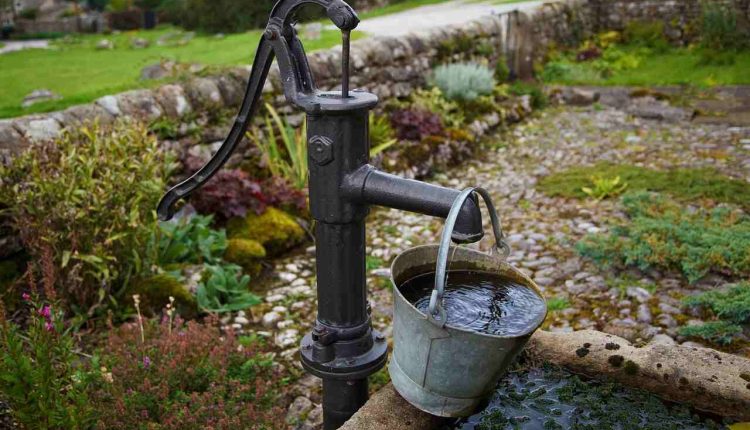Suppose you are familiar with the fundamentals of a sound system, including the pump’s location, the submersible pump’s operation, and the pump’s installation in the well casing. In that case, replacing a submersible well pump is a simple process. An experienced DIYer can typically replace submersible irrigation pumps with an understanding of electrical wiring and basic plumbing skills. This is not a how-to manual but a high-level summary to help you decide whether to attempt the installation independently or seek professional assistance. If you do the work yourself, you should expect to save between 50 and 60 percent of the cost of hiring a contractor. How deep is the well, and do you have enough space to lay down the pipe in your yard once you begin pulling it out of the casing? These are the first considerations in deciding whether or not to attempt doing it yourself. If your well is between 50 and 150 feet deep, and you’re physically capable of lifting and pulling 40 to 70 pounds of weight repeatedly without tiring, you should remove the pump manually. You’ll need at least one additional person to help you hoist the pump out of the well and direct the pipe carrying the pump’s discharge away from the opening in the ground.
The well casing is a sleeve constructed of steel, iron, or PVC pipe, typically 3″ or 4″inside diameter, into which the pump housing, discharge pipe, and wiring descend to meet the water. The electrical wire for the submersible pump, which extends to the depth of the pump in the well, and the discharge pipe, both of which are typically 1″ to 1- 14″ flexible poly pipe, are attached to the pump via a joint casing. The more material to haul out of a deep well, the more work it will be. Due to its weight, the pump system may need to be rigged above the well casing to prevent it from falling back down into the well casing when it is being retrieved. It would be best to keep pulling up on the pump until it’s completely housing-free. If you must accomplish this manually, I recommend tying a rope to the healthy cap’s upper end in advance so your helper can grab hold of it and secure it to a tree or fence while you rest.
Here are some things to remember if you want to replace the well pump. First, you should ensure the wellhead has electricity by checking the circuit breakers and switches. The good pump is likely broken if the power is on at the excellent head. Before exposing the wellhead, please turn off the power at the breaker panel, tag it, and lock it out. Remove any bushes or plants from a 6- to 8-foot radius around the wellhead to make room for the pump outlet and electrical connections. Unplug the overflow pipe and disconnect the wires from the junction box at the well’s apex. To remove the top cover of the casing, release its bolts; this is a squeeze cover with a thick rubber ring that expands as the cover is tightened and contracts as the cover is loosened. When the lid comes free, you can attempt lifting it to get a feel for how heavy the entire assembly is that needs to be hoisted out of the well.
You can start pumping now. The exterior of the pump piping may be coated in iron and silt residue. Thus, rubber gloves, protective clothes, or coveralls are recommended. Attach a draw rope to the top of the wellhead so that the other person may hang on and be secured in case of a fall. Instead of relying on the discharge hose clamps and connection, some wells may already have a leader rope or cable attached from the initial installation. One person should stand above the well to pull the discharge piping straight out of the casing, while the other person stays with the top end of the healthy cap and guides it to where you set it down as you pull. You should not let go of the end until the person leading it has a firm hold on it. Wash the entire pump end until the specification tag can be read, then pull the pump component out of the casing.
Gather the old pump’s details, including its make, model, horsepower, voltage, phase, frequency, revolutions per minute, wire configuration (2 or 3 wires), duty cycle (constant on/off), and outlet and discharge pipe sizes. Most household submersible pumps have either two or three wires. The two-wire model features two 110-volt power cables and a case ground that connects to the pump’s housing. No controls are required for the 2-wire pump. The controls should also be replaced if the pump has three wires.
Submersible pumps, including the motor and the pump, typically come as components bolted together. Swapping out the motor or pump is possible, but that’s not what I’d recommend. Once you know what kind of pump you have and how much water it can move, you may decide whether to upgrade to a bigger pump or maintain the current setup. If you want to upgrade your pump, you should ask your supplier or sound contractor for advice on what will work with your setup and the size of your pump’s pipes.
Putting in a new pump unit. Compile a detailed bill of materials for any replacement hardware, software, conduit, or switches. There is no need to put in new wire or flex pipe if the existing wiring and pipe are in good shape. A watertight splice between the electrical cables is required for the new pump’s installation. An electrician or sound contractor should specify power wire splice connection types and methods suitable for good applications. Follow the manufacturer’s directions while assembling the pipe fittings and pipe clamps. When reassembling the pump into its housing, you’ll save time by taping the power cords to the flex pipe roughly every 2 feet along its length. Before placing the assembly in the well, make a quick power check by turning on the pump. To reinstall the pump into the well after turning off the power, you’ll need two people: one to hold back the pump as it is lowered through the sound opening and feed it down, and another to feed you the slack from the wellhead cover and help hold it back from falling too quickly.
Read also: Ways How to Improve Secure Access.


